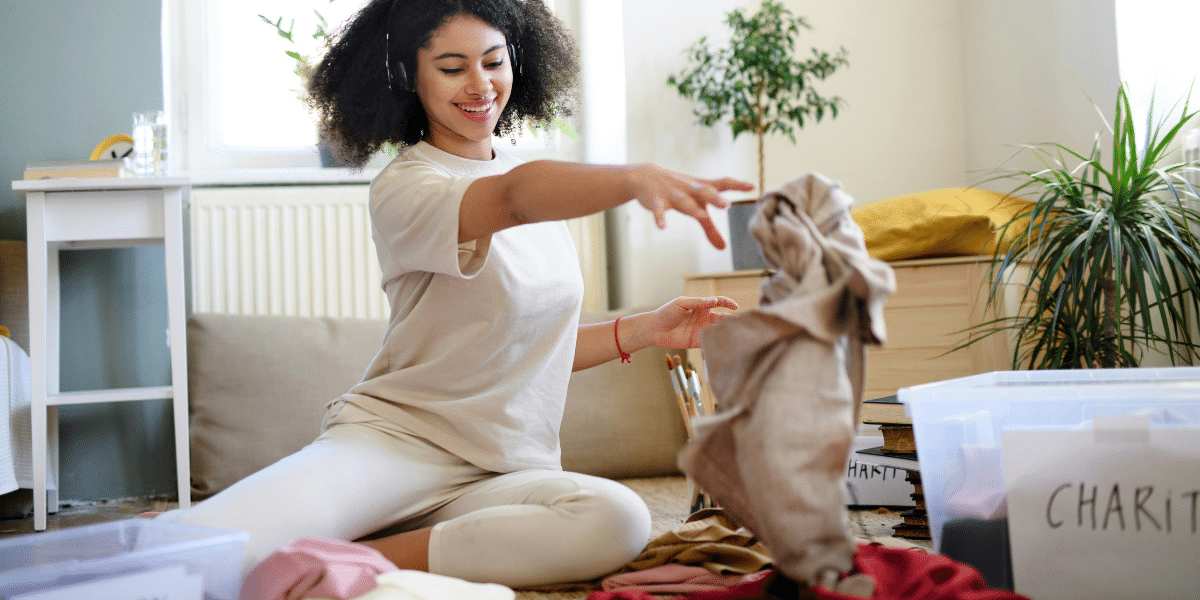Why Does Clutter Happen?
Clutter develops gradually and often unnoticed. It may begin with a few misplaced items or a crowded drawer. Over time, these small collections grow into larger piles, creating a sense of disarray. Life’s constant demands make it easy to accumulate belongings without taking the time to organize them. Recognizing why clutter occurs is an essential step toward maintaining a tidy space.
A major reason behind clutter is emotional attachment. Many people hold onto items because they represent memories or sentimental value. Another contributing factor is the “just in case” mindset—keeping items that might be useful someday. Additionally, not having a consistent system to sort and store possessions leads to accumulation. Understanding these causes can help guide decisions and habits to reduce clutter.
What Are the Benefits of an Organized Home?
An organized home can significantly improve daily life. A clutter-free environment fosters a sense of calm and focus, reducing feelings of overwhelm. When everything has its place, it becomes easier to navigate the space and complete tasks efficiently. Living in an organized home can also have emotional benefits, as it encourages a sense of control and accomplishment.
Time-saving is another advantage of staying organized. Knowing where to find items eliminates the frustration of searching through messy areas. Financially, an organized home helps avoid unnecessary purchases. For instance, when items are visible and accessible, it reduces the likelihood of buying duplicates. Beyond these practical benefits, an orderly space often translates into a more peaceful mindset.
How Can You Start Decluttering?
Beginning the process of decluttering may feel intimidating, especially when faced with years of accumulated items. The key is to focus on one small area at a time. Tackling a single drawer, shelf, or corner allows for steady progress without the process feeling overwhelming.
Choosing areas that impact daily life—such as the kitchen countertop, living room table, or bedroom—can be particularly effective. These spaces are often used frequently and serve as visible reminders of your efforts. As items are sorted, it’s important to consider whether each one adds value to your life or if it can be donated, recycled, or discarded.
Asking straightforward questions while sorting can help. Does the item serve a purpose? Is it something regularly used? If not, it might be time to let it go. Starting small and working methodically builds confidence and encourages ongoing progress.
How Should Sentimental Items Be Handled?
Deciding what to do with sentimental belongings can be one of the hardest parts of decluttering. While it’s natural to hold emotional connections to certain items, keeping too many can lead to unnecessary clutter. It’s important to strike a balance between honoring memories and creating a functional space.
Start by identifying a few items that carry the most meaning. These should be items that truly represent special moments or people. For items like old photographs or letters, consider digitizing them. This method preserves the memory without taking up physical space.
When it comes to heirlooms or other significant possessions, consider their practical value. If an item isn’t actively used or displayed, passing it on to someone who will appreciate it may be a better option. This process isn’t about discarding memories but creating space for more meaningful living.
How Can You Maintain Organization in the Long Term?
Decluttering is only part of the journey. Maintaining an organized home requires creating routines and systems that suit your lifestyle. Daily habits, like returning items to their designated places, prevent clutter from reappearing. These small, consistent actions make a big difference over time.
A helpful strategy is adopting a “one in, one out” rule. For every new item brought into the home, an older or unused item is let go. This practice helps maintain balance and prevents accumulation.
Regularly reviewing your belongings is another important step. Seasonal check-ins provide opportunities to evaluate what is used and needed. It’s a chance to reassess the purpose of items and decide whether they continue to serve a role in your home. By staying mindful of what enters and remains in your space, clutter is less likely to return.
Mindful purchasing habits also contribute to long-term organization. Before bringing something new into the home, consider its purpose and whether it aligns with your needs. Avoiding impulse purchases and focusing on intentional decisions reduces unnecessary accumulation.
Why Is Decluttering a Valuable Investment?
Decluttering is more than just organizing a space—it’s an investment in creating an environment that supports your goals and well-being. An organized home enhances daily routines, making it easier to focus on what matters most. It also promotes a sense of mindfulness, encouraging thoughtful decisions about what to keep and what to let go.
The process of letting go can also foster personal growth. Releasing excess belongings often symbolizes moving forward and creating room for new opportunities. This shift in mindset extends beyond physical spaces, influencing time management, relationships, and overall mental clarity.
An organized home contributes to a sense of peace and simplicity, which can improve emotional health. It’s not about achieving perfection but about creating a space that reflects what is most important in life. The benefits of this approach reach beyond the immediate surroundings, positively influencing other aspects of life.
Decluttering may feel overwhelming at first, but with small steps and consistent habits, it becomes manageable. By focusing on meaningful items, creating systems to stay organized, and embracing mindful choices, it’s possible to create a home that feels welcoming, functional, and peaceful. These efforts provide lasting rewards, helping individuals stay organized and enjoy a more balanced life.








